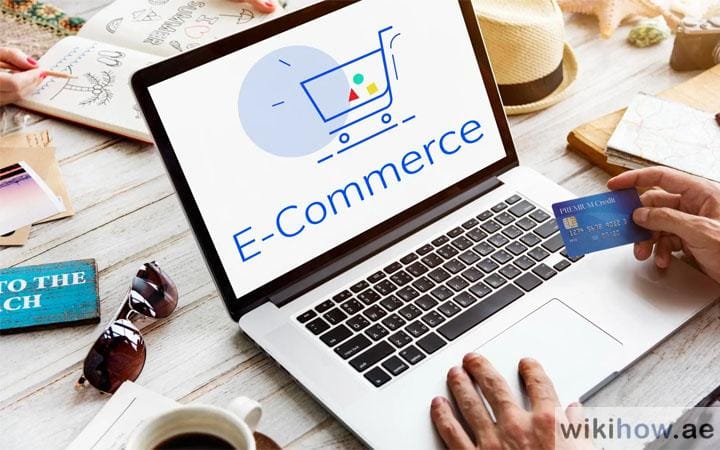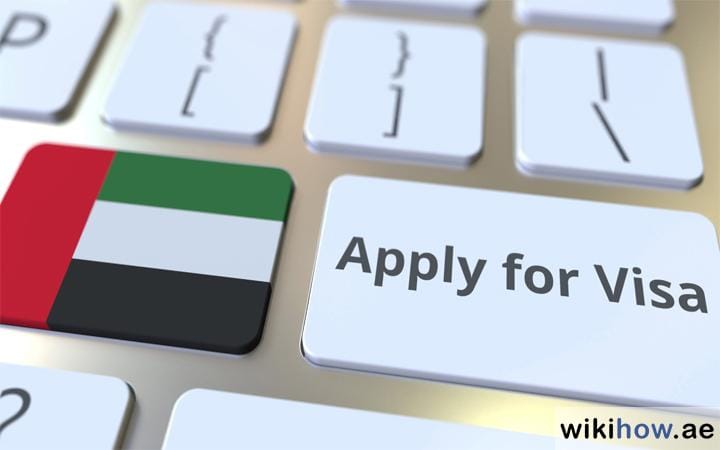How to Become an Entrepreneur in Dubai: Complete 2026 Guide

UAE’s strategic position and business-friendly environment have made it an entrepreneurial hub of choice. The excellent foundation, coupled with favorable government initiatives, makes it simply heaven for entrepreneurship. Entrepreneurs in the UAE have the advantage of a multicultural business background with never ending scopes for growth. An unparalleled chance for business success awaits you in the UAE, no matter where you come from whether local or expatriate.
Why Dubai Is a Leading Hub for Entrepreneurs
The UAE is a very pivotal point for business in a nation across the globe. Because it is a strategically located country that connects Asia to Europe, it is the best gateway to international markets. The tax-free economic and business-friendly ambiance drives an investor from any part of the globe. State of the art infrastructure combined with digital transformation makes the country ideal for startups and enterprises. Besides this, the UAE provides unmatched political stability, access to a highly qualified workforce and developed logistics networks that ensure frictionless operations for companies of any size. More about the reasons to start a business in UAE, discover why entrepreneurs from all over the world are choosing this dynamic nation for their ventures.

Competitive advantages: infrastructure, tax-free zones, global connectivity
Some of Dubai’s biggest advantages are its excellent infrastructure, state-of-the-art logistics, and stable digital ecosystem. Entrepreneurs benefit from tax-free zones that allow for 100% business ownership and profit repatriation because they significantly reduce financial burdens. Dubai’s global connectivity, which includes one of the busiest international airports and shipping hubs, also gives businesses direct access to markets in Asia, Europe, and Africa.
Government assistance and Dubai’s business-friendly environment
The Dubai government plays a vital role in promoting entrepreneurship by offering investor-friendly policies, expedited business setup processes and simplified licensing. Programs like Dubai Startup Hub and Dubai Future Foundation provide funding, networking opportunities, and mentorship to innovators. Dubai’s low bureaucracy and commitment to digital transformation have made starting and running a business there easier than ever.
The UAE Entrepreneurial Ecosystem
While the Gulf and the UAE in particular, is characterized by a plethora of government support initiatives, startup incubators and innovation hubs, the Dubai SME and Khalifa Fund provide funding and mentoring to support entrepreneurship. Entrepreneurs also benefit from an open and dynamic market with high purchasing power among its consumers. Various Entrepreneur Support Programs in UAE play a crucial role in empowering startups and fostering innovation across the region.
Dubai’s leading incubators and accelerators
Dubai is home to a large number of premier incubators and accelerators that are crucial to the growth of startups. Through programs like Astrolabs, in5 and Dubai Future Accelerators, entrepreneurs can get access to mentors, coworking spaces, and investors. These platforms connect startups to global markets so they can grow globally, while also assisting them in refining their business plans.
Role of free zones, VCs, angel networks
Free zones like Dubai Internet City and Dubai International Financial Centre attract entrepreneurs from all over the world due to their simplified business regulations, tax benefits and full foreign ownership. Meanwhile, angel investor networks and venture capital firms actively fund promising startups, driving innovation in the fintech, e-commerce, and technology sectors. Together, these people form the cornerstone of Dubai’s commercial prosperity, promoting sustained growth and global competitiveness.

Essential Skills & Mindset to Thrive as an Entrepreneur in Dubai
Understanding the particulars of the UAE market, such as its legal framework, pro-business regulations, and multicultural workforce, is essential for a successful business owner. In addition to their ambition, they are resilient, innovative and strategic thinkers. An entrepreneur’s chances of success can be significantly increased by utilizing the nation’s strong infrastructure and government assistance for new businesses.
Top Entrepreneurial Skills for Thriving in UAE
Entrepreneurs who want to succeed in the United Arab Emirates need to be experts in digital marketing, financial savvy, and strategic planning. Building business relationships in a multicultural workplace requires effective networking and communication. Successful entrepreneurs are distinguished by their high degree of flexibility and familiarity with the demands of the local market.
Cultural Intelligence and Adaptability in UAE Business
Understanding the UAE’s business culture necessitates a high level of cultural competency and flexibility. Entrepreneurs dealing with professionals from more than 200 countries must be aware of local customs, laws, and Islamic faiths. Negotiations are facilitated by openness and cultural sensitivity, which also foster alliances and trust.
Learning from Successful Emirati and Expat Entrepreneurs
By fusing local knowledge with global business concepts, many Emirati and foreign entrepreneurs have created inspiring careers. Examining their lives demonstrates the value of perseverance, creativity, and collaboration with society. Their experiences demonstrate that in order to succeed in the long run, one needs to become knowledgeable about the UAE market’s changing landscape and develop a brand that is sensitive to cultural differences.
Choosing the Right Business Structure in UAE
The selection of an appropriate business structure is very important for long-term sustainability and growth. With a view on the level of liability, operational control, and financial investment, the entrepreneurs have to choose. Choosing the right structure can significantly impact business efficiency and future expansion. The strategies adopted by Top entrepreneurs in UAE offer valuable insights into successful business models and sustainable growth practices. These leaders have outperformed others by aligning their business structures with market demands, innovation and regulatory compliance, setting benchmarks for aspiring entrepreneurs in the region.

Sole Proprietorship vs. LLC
For small businesses with minimal financial risk, a sole proprietorship is ideal. An LLC, on the other hand, is a business structure for medium-sized to large enterprises that incorporates limited liability. Regarding your risk appetite, there are advantages and disadvantages to both.
Free Zone vs. Mainland Business
Free zones are appealing to international businesspeople because they offer tax advantages and 100% ownership. However, mainland businesses give you more options when it comes to how you operate in the UAE market.
Benefits of Free Zones
Free zones have no currency restrictions, 100% foreign ownership and tax exemptions. Additionally, they have streamlined business setup processes, which attracts new business owners.
Prominent free zones in Dubai
The Abu Dhabi Global Market (ADGM), Jebel Ali Free Zone (JAFZA) and Dubai Multi Commodities Centre (DMCC) are a few of the most well-known free zones. Every Free Zone serves a distinct industry and provides distinctive business solutions in line with that.
Step-by-Step Process to Launch a Business in Dubai
Starting a business in the UAE requires a lot of careful planning and execution. Each step is important for establishing a strong foundation for your entrepreneurial journey.

1. Idea Validation and Market Research
Any business idea in uae should be validated before one starts a business. Conduct proper market research to understand the needs of the customers and strategies of the competitors. Identification of market gaps will give your business a competitive advantage.
2. Registering Your Business
Selecting a trade name, obtaining preliminary approval, and filling out the necessary forms and documentation are all part of the registration process. Depending on whether you’re setting up on the mainland or in a free zone, these steps might differ slightly.
3. obtaining approvals, permits and compliance audits
The first step in launching a business in Dubai is obtaining the necessary trade licenses and permits from the relevant free zone authority or the Department of Economic Development (DED). Entrepreneurs must also ensure that the business activity they have selected complies with local and industry regulations. Depending on the industry, additional approvals such as environmental, health or safety clearances might be required to ensure that businesses follow international standards.
4. Establishing an office and opening a bank account
Once approvals are received, entrepreneurs can open a corporate bank account, which is required for effective financial operations. Dubai’s banking system is globally recognized and offers startups and SMEs flexible and secure options. In order to attract partners and clients, businesses must concurrently set up a physical or virtual office that not only meets legal requirements but also provides a polished environment, usually in co-working spaces or free zones.
High-Growth Sectors for Startups in Dubai 2026
As of 2026, the UAE remains prepared with a plethora of business opportunities across various industries, propelled by innovation, government incentives and a growing consumer base. With the help of lifestyle and travel-based businesses and the nation’s increasing international recognition, tech startups, greenfield developments, and e-commerce endeavors are particularly growing. These broad categories reflect the UAE’s progress toward a sustainable, knowledge-based economy.
Tech & Innovation-Based Startups
Innovation-based startups thrive in the UAE because of its dedication to becoming a global tech hub. With the help of programs like Dubai Internet City and Abu Dhabi’s Hub71, industries like artificial intelligence, blockchain, fintech and healthtech are flourishing. This forward-thinking ecosystem is providing strong support to entrepreneurs with innovative concepts and scalable business models.
E-commerce and Online Services
The UAE’s digital commerce sector is thriving owing to high digital payment penetration, internet adoption and changing consumer behavior. Online shopping platforms, delivery platforms and service platforms have become an integral part of daily life with enormous entrepreneurial value. Aspiring entrepreneurs looking to start ecommerce business in UAE can take advantage of this booming market, supported by world class logistics, tech-savvy consumers, and government-backed initiatives. This trend will only grow stronger with increased digitalization in all sectors.

Green and Sustainability-Focused Businesses
Since UAE Vision 2030 places a strong emphasis on sustainability, companies that prioritize the environment are receiving more support. Environmentally conscious startups are gaining traction in the fields of waste management, green technology, sustainable fashion and renewable energy. For visionary founders, grants, government incentives, and community awareness create a favorable environment.
Tourism, F&B and Lifestyle Ventures
Due to the UAE’s continued popularity as a travel destination, startups can find success in the food and beverage, hospitality, and lifestyle sectors. Some are focusing on luxury services, niche experiences, and global culinary trends. Events like Expo 2020 garnered even more international attention, opening the door for future expansion and innovation in these lifestyle-based economies.
Visa Requirements for Entrepreneurs
A vital first step for entrepreneurs planning to open in Dubai is obtaining the proper type of visa. The UAE government offers a range of visa options to help investors, business partners and innovators. Each type of visa has specific requirements, benefits, and validity periods to guarantee that business owners can reside, work and operate their companies legally in the country. Choosing the right visa depends on a number of factors, including the type of business, the amount of investment and long-term objectives.
Types of Entrepreneur Visas
The UAE offers a number of visa categories specifically designed for business owners:
- Investor Visa: The Investor Visa is intended for people who want to start their own business or invest in an existing company. Long-term residency and complete operational control of the business are frequently granted by this visa.
- Partner Visa: Partner Visas are given to people who join or become shareholders in an already-existing business that is registered in Dubai. Although it is subject to partnership agreements, it provides rights that are comparable to those of the Investor Visa.
- Golden Visa: The Golden Visa is a distinguished long-term residency visa intended for investors, entrepreneurs, and extraordinary talent. For those who are dedicated to expanding their businesses in Dubai, it offers more stability and residency for up to ten years.
Every option has unique qualifying requirements, such as proof of innovation, business ownership or minimum investment thresholds.
Visa Application Process
It is easy to apply for an entrepreneur visa in Dubai, but accuracy and compliance are required. Typically, candidates need to submit official identification documents, proof of investment and company registration details. Medical exams, Emirates ID registration, and security checks are also necessary. Once the required paperwork has been finished and authorized by immigration authorities, the visa is stamped in the passport. A well-prepared application can significantly speed up the process, enabling business owners to move in sooner and focus on growing their company.

Building a Strong Network & Reputation in Dubai
Networking is a powerful tool for entrepreneurs in the UAE. Strong connections can open doors to partnerships, investments and growth opportunities.
Importance of Networking
Networking will help the entrepreneurs in finding clients, partners, and investors in the competitive market of UAE. There is a guaranteed way to grow your contacts: attend networking events.
Join Business Communities and Events
They also can be a part of Dubai Chamber of Commerce, networking clubs, and other industry-specific conferences. These offer great avenues to meet similar-minded professionals and to share insights for valuable partnerships. Attending business networking events in Dubai opens doors to collaboration, investment opportunities, and industry knowledge. In sum, such events will help build professional relations and keep them updated with the latest market trends for business growth in the region.
Funding Options Available to Entrepreneurs in the UAE
Business owners in the UAE are able to choose from a varied set of financing alternatives tailored to facilitate business development at all stages. Starting from government grants and venture funding to bank financing and crowdfunding, the nation offers a strong financial environment. In fact, Funding for startups in UAE has become increasingly accessible, thanks to dedicated platforms, incubators and supportive government initiatives. Familiarity with these alternatives and choosing the most appropriate one can go a long way in ensuring that a startup attains long-term success and viability.

Government and Private Grants for Entrepreneurs
Through innovation parks, incubators, and grant programs, the UAE government promotes entrepreneurship. Startups can access resources, mentorship, and funding through programs like Dubai SME and Khalifa Fund. Private organizations and accelerators also offer non-repayable grants to high-potential startups, particularly those with a focus on innovation, technology or sustainability.
Bank Loans and Islamic Finance for Startups
For UAE business owners, bank loans continue to be a conventional but practical source of funding, with a number of programs tailored to the needs of startups and SMEs. The majority of entrepreneurs find Sharia-compliant, interest-free financing through Islamic finance options like Murabaha and Ijara to be appealing. These financial instruments promote ethical business practices and offer simple terms for repayment.
Legal Mistakes to Avoid as a First-Time Entrepreneur in the UAE
Although there are many benefits to establishing a business in the United Arab Emirates, legal errors may result in expensive delays or penalties. New business owners typically deal with ongoing issues pertaining to legal requirements, compliance and business setup. Avoiding these well-known pitfalls and ensuring future operations run smoothly can be ensured by being knowledgeable and providing professional advice.

Misperception about Free Zone and Mainland Regulation
Ignoring the distinctions between mainland and free zone business setups is one of the most frequent errors. Regulations, ownership rights, and trade restrictions differ for each. Incorrect business model setup can limit an entrepreneur’s ability to hire, trade or expand. Aligning the business structure with long-term objectives is crucial.
Failure to Maintain Proper Licensing & Permits
Losing or operating without licenses can result in severe penalties or even business closure. To ensure that operations adhere to the authorized scope and take notice of renewal, businesspeople must remain vigilant. To remain in compliance with the law and maintain credibility, it is essential to keep all permits up to date, including trade licenses and special industry permits.
Forgetting Taxation and VAT Compliance
Startups should be mindful of their tax implications because VAT was first introduced in the United Arab Emirates. Penalties and legal action may result from improper filings, neglecting VAT registration or not making payments on time. For the sake of openness and confidence in the government, it is critical to be aware of the UAE’s taxation system as well as corporate tax news.
Dubai Entrepreneurs’ Obstacles and Solutions
Even though Dubai offers entrepreneurs unmatched opportunities, starting a successful business here comes with challenges. In order to navigate a competitive market and adapt to cultural quirks, entrepreneurs must be proactive and strategic. Maintaining growth and ensuring long-term success in Dubai’s dynamic economy necessitates an awareness of these problems and the implementation of workable solutions.

Competition, talent retention and market saturation
Dubai is a global hub for business, with a number of highly saturated industries, including retail, e-commerce, and real estate. This creates intense competition and makes it more difficult to stand out. Attracting and retaining top talent can also be challenging due to high living costs and global mobility. To overcome these issues, entrepreneurs should put an emphasis on innovation, focus on niche markets and offer enticing employee benefits to retain staff.
Balancing regulatory compliance with agility
Entrepreneurs in Dubai usually find it difficult to reconcile the city’s strict regulations with the need for flexibility and creativity. Complying with labor, tax and license regulations can still be challenging, despite the UAE government’s efforts to streamline many processes. The solutions include using free zones that provide more operational flexibility, staying up to date on policy changes, and collaborating with reliable legal counsel.
Language and cultural barriers
Dubai’s multicultural setting offers both opportunities and challenges. Entrepreneurs may find it difficult to handle different cultural expectations and language barriers when interacting with clients, partners, or employees. By cultivating cultural intelligence, employing multilingual staff, and taking part in cross-cultural training, entrepreneurs can fortify business ties and enhance communication in this global marketplace.
Entrepreneur Residency & Golden Visa for UAE Business Owners
UAE’s Golden Visa and Entrepreneur Residency programs offer long-term stability and an array of incentives to founders of business who want to base or establish their business in the UAE. Both these schemes are the pillars of the UAE’s effort to invite talent from everywhere across the globe into its nation along with investments. Precisely, the Golden Visa scheme awards suitable founders with 10-year residence visas which will allow them to work, reside, and develop their business without relying on a local sponsor. Applicants typically need to demonstrate a successful business track record or a creative startup idea supported by an accredited incubator. With advantages such as family sponsorship, access to banking facilities, and business incentives, these visa types provide a good platform for long-term entrepreneurial success in the UAE.

Eligibility for Golden Visas for entrepreneurs
Investors, entrepreneurs, and exceptional people who contribute to the country’s economic growth are the target audience for the UAE Golden Visa. Entrepreneurs may qualify if they establish a business with creative potential, meet specific investment requirements, or are accepted by a respectable incubator. The visa provides benefits like easier access to international business opportunities and the ability to sponsor family members, in addition to allowing for up to ten years of residency.
Transitioning from investor visa to Golden Visa
Many entrepreneurs initially enter Dubai with an Investor Visa, but ultimately choose to switch to the Golden Visa due to its more comprehensive benefits. To continue with the transition process, additional eligibility requirements must be fulfilled, such as demonstrating significant investment value, submitting audited financial statements, or proving business profitability. Since upgrading gives them more stability, longer residency and better privileges, it makes sense for business owners who are committed to long-term success in Dubai.
Conclusion
Becoming an entrepreneur in the UAE is a promising and rewarding journey. With a business-friendly environment, strategic location and government support, the UAE offers an ideal ecosystem for entrepreneurs. By following the right steps, staying informed and leveraging available resources, aspiring entrepreneurs can turn their business dreams into reality. breaking news and economic insights to practical answers about living and working in the UAE. Stay Updated with the Latest UAE News on WikiHow!
FAQs
1. What is the cost of starting a business in the UAE?
The cost varies depending on the business structure, license type and location. On average, it starts from AED 15,000.
2. What are the key industries for entrepreneurship in the UAE?
Key industries include technology, tourism, finance and real estate.
3. How long does it take to set up a business in the UAE?
It typically takes 1-4 weeks, depending on the business type and required permits.
4. Are there any government grants for entrepreneurs in the UAE?
Yes, programs like Khalifa Fund and Dubai SME offer financial grants and support.





